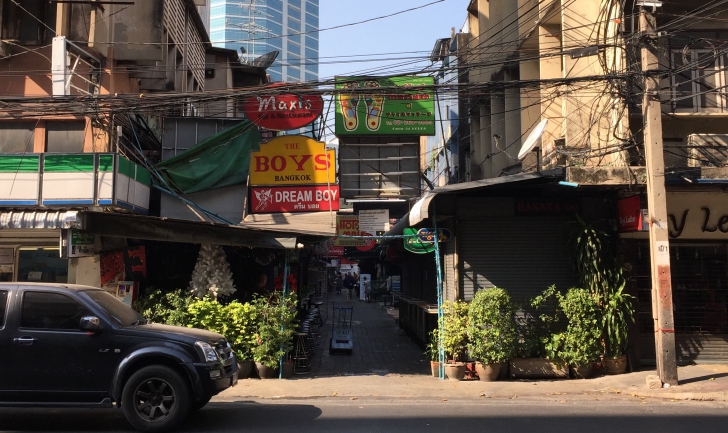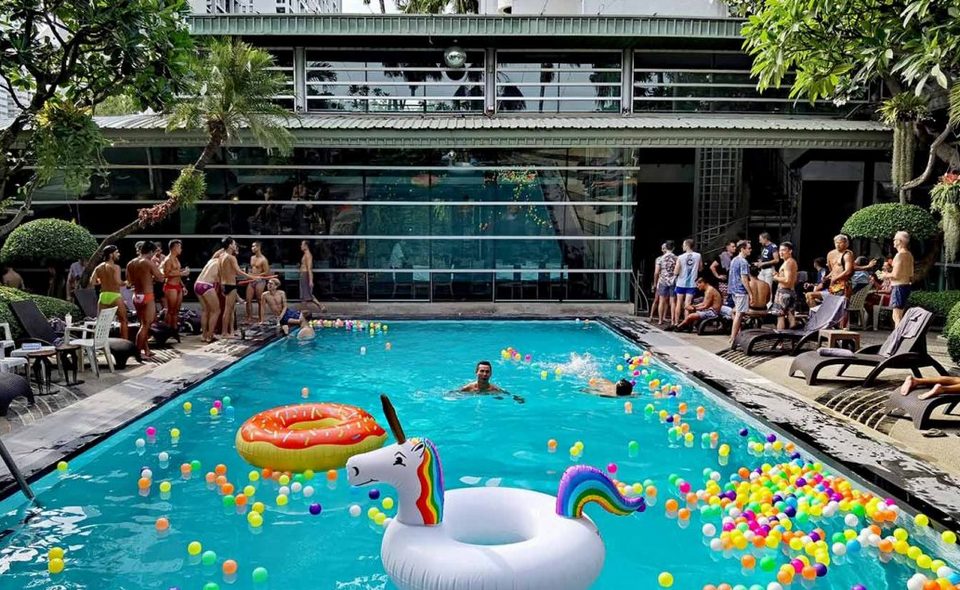
The recent arrest of 60 men – all Thais so far as we know – in Bangkok’s Faros sauna has sparked afresh an ancient debate about gay bath houses and retreats. In fact, the earliest known raid was in fifteenth-century Florence where 44 men were convicted of the “abominable vice of sodomy in murky sheds.” Some bloggers on Thai social media at the present time are speaking of disgust and abomination in similar vein.
But arresting police were careful to avoid moralizing, stressing instead that chemsex and drugs trafficking could be a source of Covid-19 infection. The criminal charges mostly related to violating the state of emergency and breaching the communicable disease legislation. Police colonel Ekkaphop Tanprayoon, who led the raid, stressed that a main aim was to protect the health of his officers. He explained that Good Samaritans had informed the authorities of nefarious activities which undermined anti-Covid policies.

Gay pressure groups seem to agree. The Bangkok Rainbow Association said it was concerned that people may now believe all gays are promiscuous and disease spreaders. President Nikorn Chimkong said saunas were not just about sexual activity but also the human need for social interaction and mingling. Since the Faros raid occurred, police nationally have raided several beach parties and drinking dens where outlawed alcohol and forbidden social mixing were on open display.
Worldwide, gay bath houses have been in decline since the AIDS crisis dating from the 1980s. In the United States, the number has dived from a peak of 350 to less than 70 today. In London, Europe’s largest gay sauna, known as Chariots, closed its doors in January 2021 and is now in process of liquidation. In the years preceding Covid-19, the biggest reason for closure was the appearance of websites and hook-up and dating apps such as Scruff and Grindr which have partly replaced traditional meeting grounds for casual sex such as bars, clubs, saunas, parks and toilets.

Some say that an under-exposed reason for the closure of many gay meeting places, including saunas, is the process of gentrification. This means that, as property rents and purchase prices rise steeply in urban centers, traditional users are forced to leave to make way for expensive tower blocks, malls and top-tier residence developments. It is certainly true that much of Bangkok’s traditional night life, straight and gay, has already been scattered geographically by the huge demolition or redevelopment projects in downtown districts.
The saunas which have survived to date are very unlike the traditional drab shophouses which offered only a towel, a bar of soap and a steam room, as shown for example in the 1973 movie Day of the Jackal. The Faros sauna website illustrated the new generation of gay retreats offering choice and luxury. It promised much more than steam: a karaoke, a dancing room, a gymnasium, a swimming pool, a Jacuzzi, two restaurants and even a cinema as well as 50 private rooms and cabins. Of course, it’s closed now.
As regards the future, there are many viewpoints. Some say that gay saunas give much-needed safe places which hookup apps cannot provide. At the other end of the spectrum, it is argued that bath houses should be closed for public health or morality reasons. Meanwhile, city centers worldwide are undergoing enormous changes as small businesses move out, unable to compete in the cash stakes. As Khun Prasert of the Rainbow Sky Alliance put it, “Queer spaces like saunas will survive because people want to mix with like-minded groups, but there will be a lot fewer choices post-Covid. That’s for sure.”
 |
 |
 |





